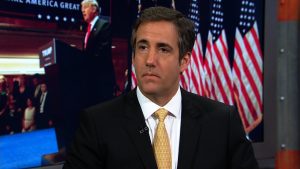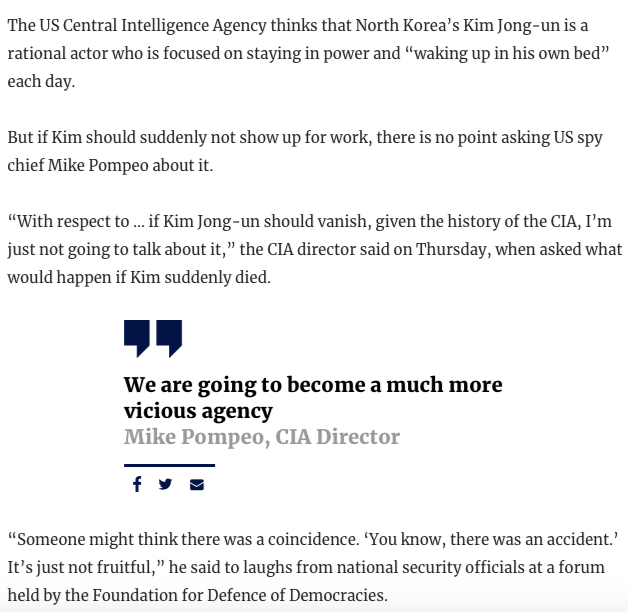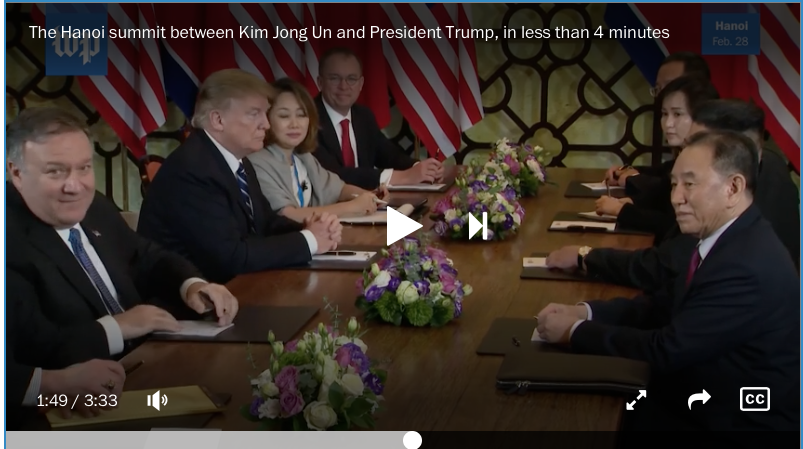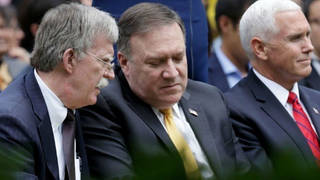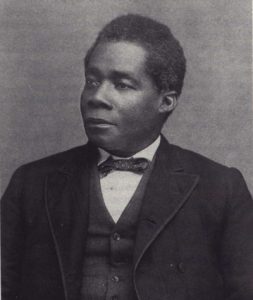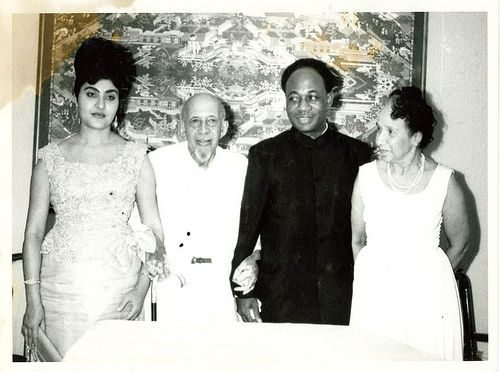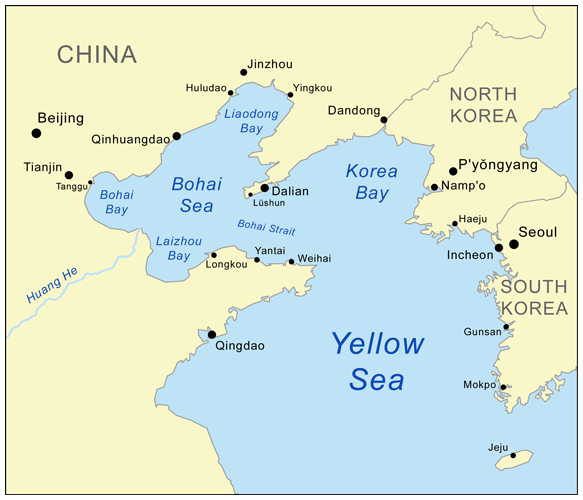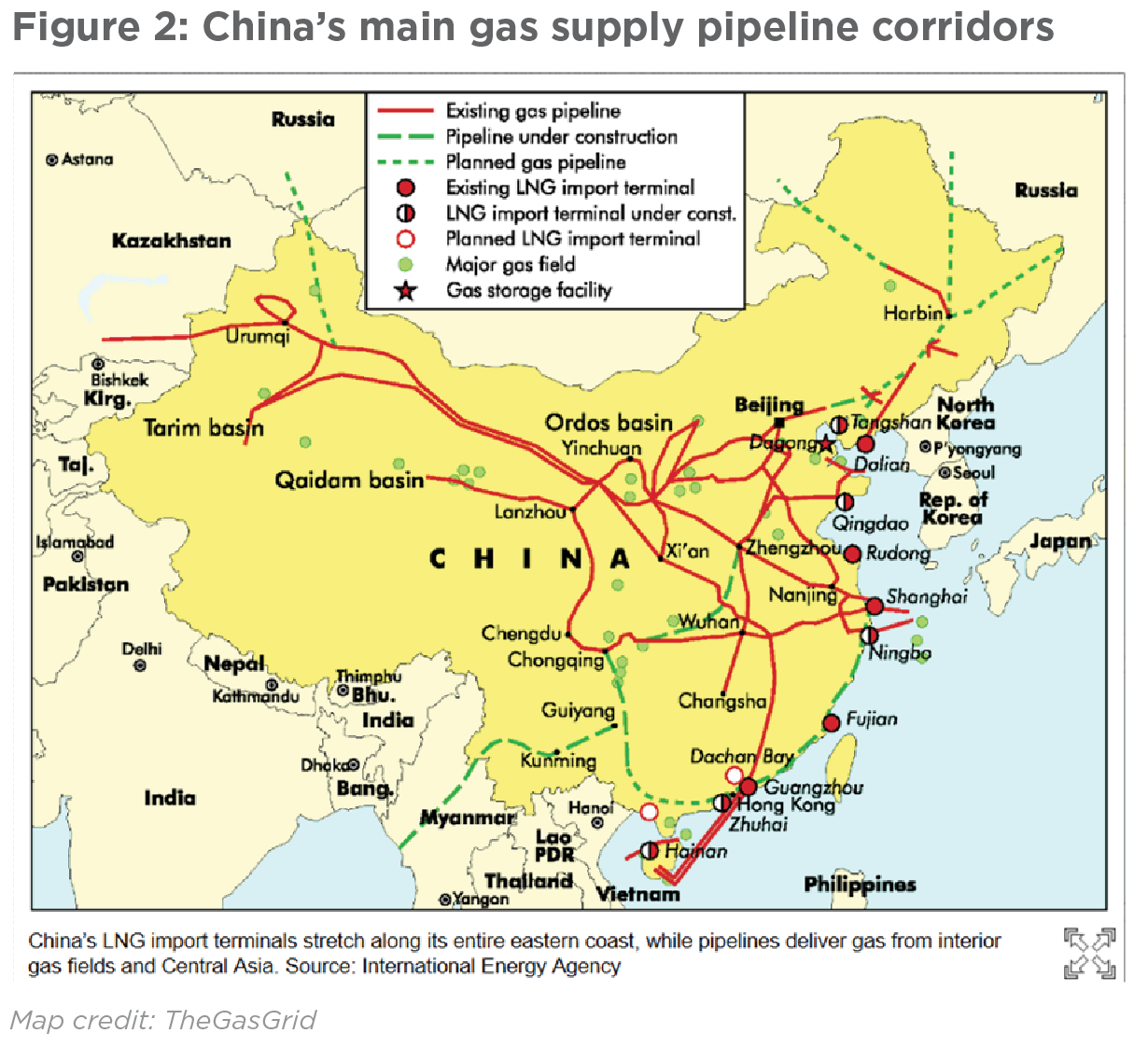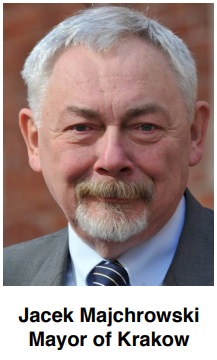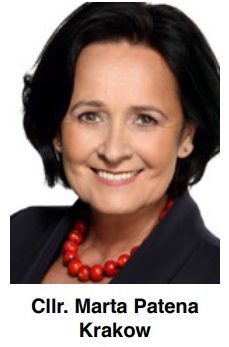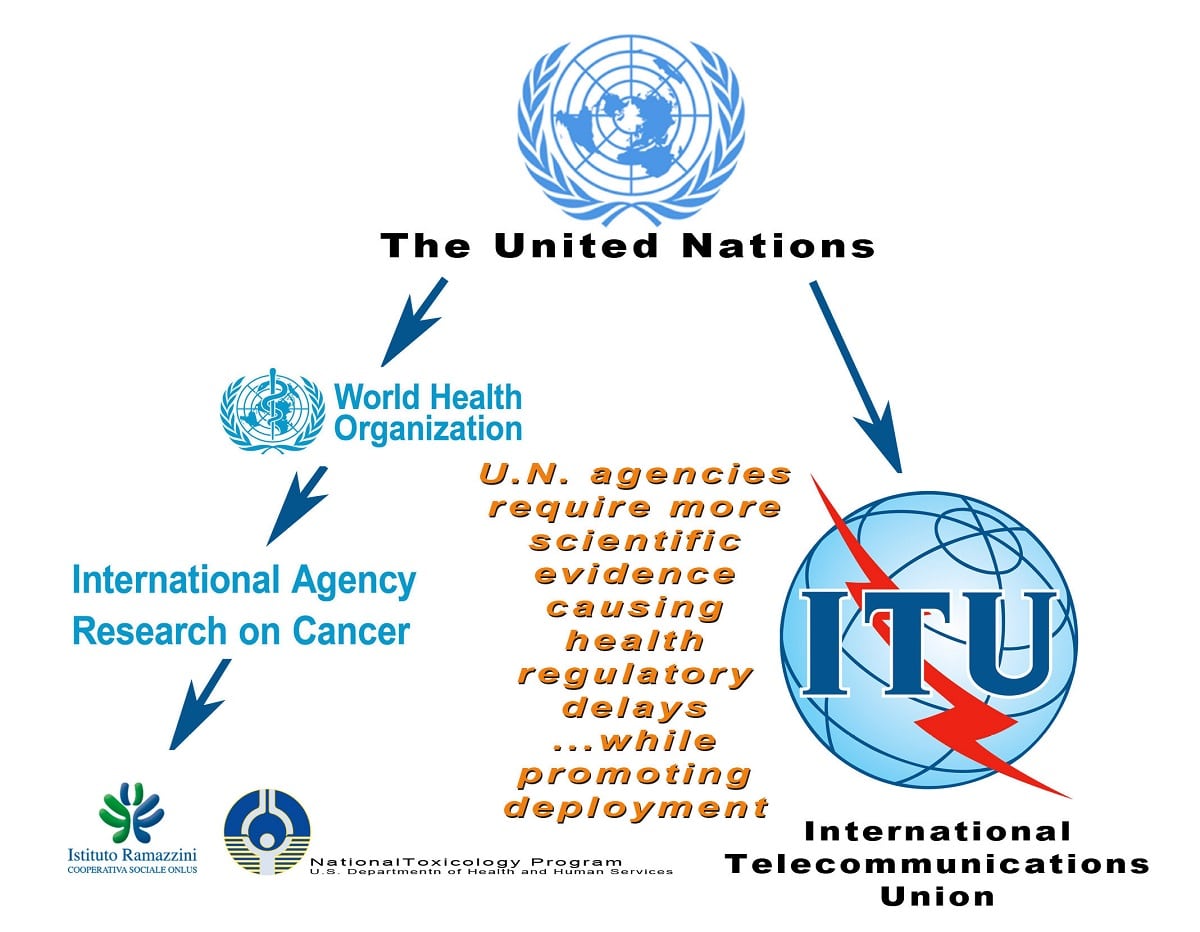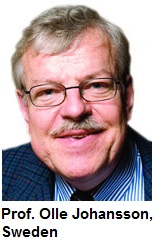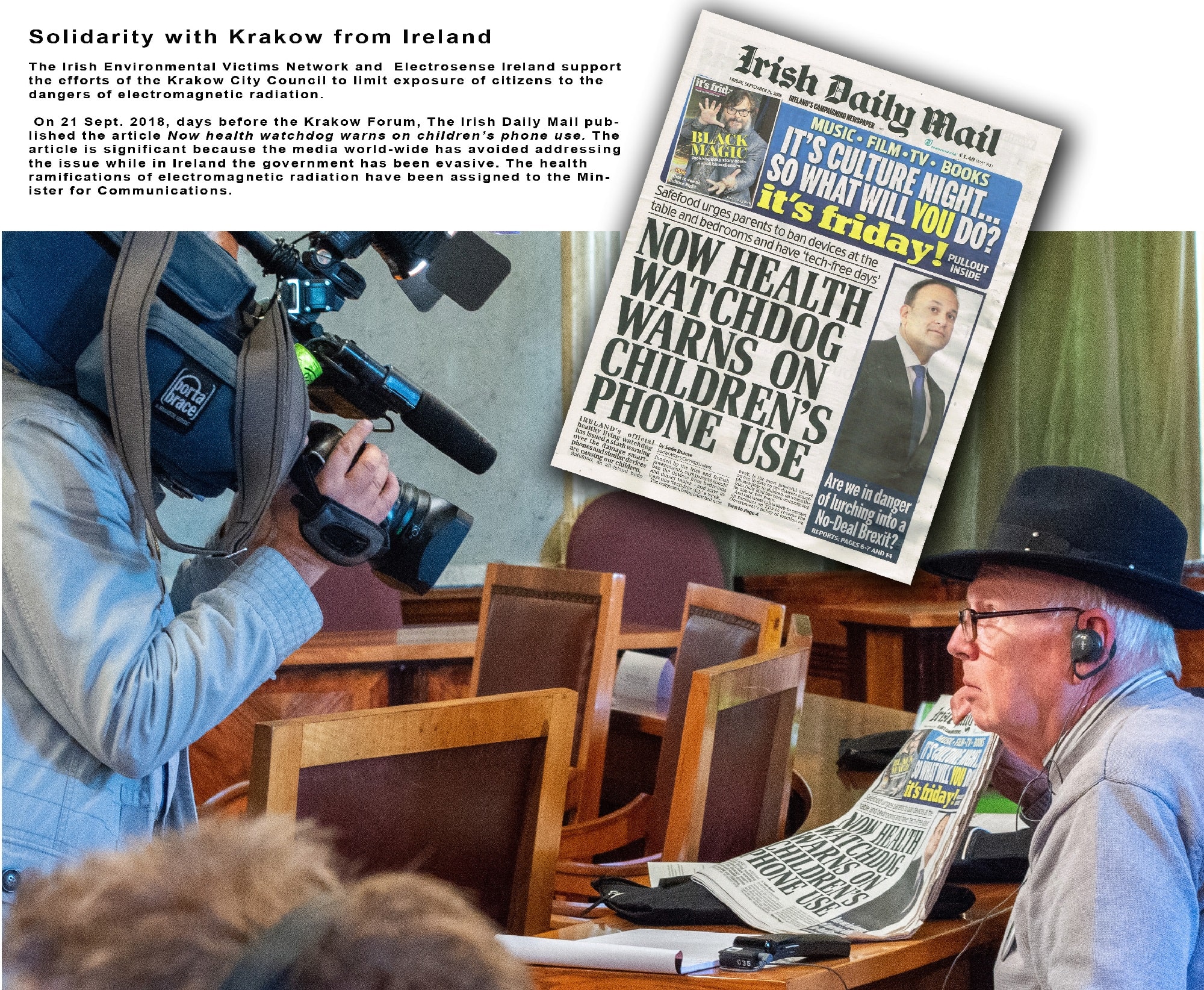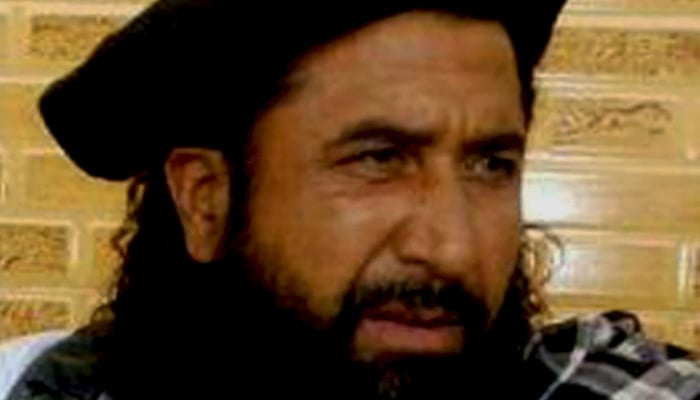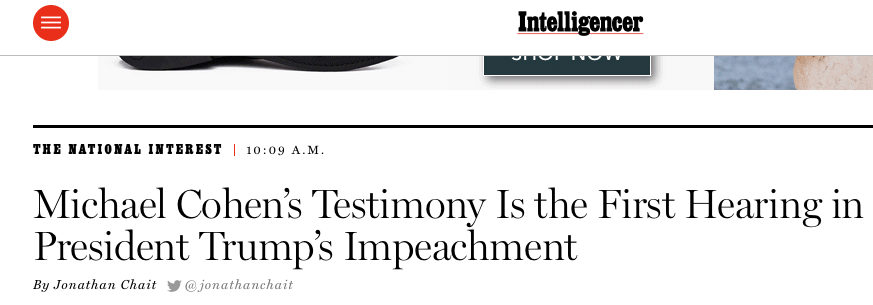Author’s Note
This article was written 15 years ago, in the last days of February 2004 in response to the barrage of disinformation in the mainstream media. It was completed on February 29th, the day of President Jean Bertrand Aristide’s kidnapping and deportation by US Forces.
The armed insurrection which contributed to unseating President Aristide on February 29th 2004 was the result of a carefully staged military-intelligence operation, involving the US, France and Canada.
The 2004 coup had set the stage for the installation of a US puppet government in Port au Prince, which takes orders directly from Washington.
And today, a US Coup is on the drawing board of the White House. Canada as well as France are once again complicit in supporting the over-through of the duly elected president of Venezuela.
It’s all for a good cause: install “American Democracy”, “Alleviate poverty”. An the self-proclaimed “international community” applauds.
Michel Chossudovsky, Global Research, February 28, 2019
The below article was subsequently published as a Chapter in Michel Chossudovsky’s book entitled The Globalization of War
(Minor editorial corrections were made to the original draft since its publication on February 29th 2004, the title of the article predates the actual Coup D’Etat which was in the making at the time of writing).
original article published at http://globalresearch.ca/articles/CHO402D.html
US Sponsored Coup d’Etat: The Destabilization of Haiti
by Michel Chossudovsky
The Rebel paramilitary army crossed the border from the Dominican Republic in early February. It constitutes a well armed, trained and equipped paramilitary unit integrated by former members of Le Front pour l’avancement et le progrès d’Haiti (FRAPH), the “plain clothes” death squadrons, involved in mass killings of civilians and political assassinations during the CIA sponsored 1991 military coup, which led to the overthrow of the democratically elected government of President Jean Bertrand Aristide
The self-proclaimed Front pour la Libération et la reconstruction nationale (FLRN) (National Liberation and Reconstruction Front) is led by Guy Philippe, a former member of the Haitian Armed Forces and Police Chief. Philippe had been trained during the 1991 coup years by US Special Forces in Ecuador, together with a dozen other Haitian Army officers. (See Juan Gonzalez, New York Daily News, 24 February 2004).
The two other rebel commanders and associates of Guy Philippe, who led the attacks on Gonaives and Cap Haitien are Emmanuel Constant, nicknamed “Toto” and Jodel Chamblain, both of whom are former Tonton Macoute and leaders of FRAPH.
In 1994, Emmanuel Constant led the FRAPH assassination squadron into the village of Raboteau, in what was later identified as “The Raboteau massacre”:
“One of the last of the infamous massacres happened in April 1994 in Raboteau, a seaside slum about 100 miles north of the capital. Raboteau has about 6,000 residents, most fishermen and salt rakers, but it has a reputation as an opposition stronghold where political dissidents often went to hide… On April 18 [1994], 100 soldiers and about 30 paramilitaries arrived in Raboteau for what investigators would later call a “dress rehearsal.” They rousted people from their homes, demanding to know where Amiot “Cubain” Metayer, a well-known Aristide supporter, was hiding. They beat people, inducing a pregnant woman to miscarry, and forced others to drink from open sewers. Soldiers tortured a 65-year-old blind man until he vomited blood. He died the next day.
The soldiers returned before dawn on April 22. They ransacked homes and shot people in the streets, and when the residents fled for the water, other soldiers fired at them from boats they had commandeered. Bodies washed ashore for days; some were never found. The number of victims ranges from two dozen to 30. Hundreds more fled the town, fearing further reprisals.” (St Petersburg Times, Florida, 1 September 2002)
During the military government (1991-1994), FRAPH was (unofficially) under the jurisdiction of the Armed Forces, taking orders from Commander in Chief General Raoul Cedras. According to a 1996 UN Human Rights Commission report, FRAPH had been supported by the CIA.
Under the military dictatorship, the narcotics trade, was protected by the military Junta, which in turn was supported by the CIA. The 1991 coup leaders including the FRAPH paramilitary commanders were on the CIA payroll.
(See Paul DeRienzo, http://globalresearch.ca/articles/RIE402A.html , See also see Jim Lobe, IPS, 11 Oct 1996). Emmanuel Constant alias “Toto” confirmed, in this regard, in a CBS “60 Minutes” in 1995, that the CIA paid him about $700 a month and that he created FRAPH, while on the CIA payroll. (See Miami Herald, 1 August 2001). According to Constant, the FRAPH had been formed “with encouragement and financial backing from the U.S. Defense Intelligence Agency and the CIA.” (Miami New Times, 26 February 2004)
The Civilian “Opposition”
The so-called “Democratic Convergence” (DC) is a group of some 200 political organizations, led by former Port-au-Prince mayor Evans Paul. The “Democratic Convergence” (DC) together with “The Group of 184 Civil Society Organizations” (G-184) has formed a so-called “Democratic Platform of Civil Society Organizations and Opposition Political Parties”.
The Group of 184 (G-184), is headed by Andre (Andy) Apaid, a US citizen of Haitian parents, born in the US. (Haiti Progres, http://www.haiti-progres.com/eng11-12.html ) Andy Apaid owns Alpha Industries, one of Haiti’s largest cheap labor export assembly lines established during the Duvalier era. His sweatshop factories produce textile products and assemble electronic products for a number of US firms including Sperry/Unisys, IBM, Remington and Honeywell. Apaid is the largest industrial employer in Haiti with a workforce of some 4000 workers. Wages paid in Andy Apaid’s factories are as low as 68 cents a day. (Miami Times, 26 Feb 2004). The current minimum wage is of the order of $1.50 a day:
“The U.S.-based National Labor Committee, which first revealed the Kathie Lee Gifford sweat shop scandal, reported several years ago that Apaid’s factories in Haiti’s free trade zone often pay below the minimum wage and that his employees are forced to work 78-hour weeks.” (Daily News, New York, 24 Feb 2004)
Apaid was a firm supporter of the 1991 military coup. Both the Convergence démocratique and the G-184 have links to the FLRN (former FRAPH death squadrons) headed by Guy Philippe. The FLRN is also known to receive funding from the Haitian business community.
In other words, there is no watertight division between the civilian opposition, which claims to be non-violent and the FLRN paramilitary. The FLRN is collaborating with the so-called “Democratic Platform.”
The Role of the National Endowment for Democracy (NED)
In Haiti, this “civil society opposition” is bankrolled by the National Endowment for Democracy which works hand in glove with the CIA. The Democratic Platform is supported by the International Republican Institute (IRI) , which is an arm of the National Endowment for Democracy (NED). Senator John McCain is Chairman of IRI’s Board of Directors.
(See Laura Flynn, Pierre Labossière and Robert Roth, Hidden from the Headlines: The U.S. War Against Haiti, California-based Haiti Action Committee (HAC), http://www.haitiprogres.com/eng11-12.html ).
G-184 leader Andy Apaid was in liaison with Secretary of State Colin Powell in the days prior to the kidnapping and deportation of President Aristide by US forces on February 29. His umbrella organization of elite business organizations and religious NGOs, which is also supported by the International Republican Institute (IRI), receives sizeable amounts of money from the European Union.(http://haitisupport.gn.apc.org/184%20EC.htm ).
It is worth recalling that the NED, (which overseas the IRI) although not formally part of the CIA, performs an important intelligence function within the arena of civilian political parties and NGOs. It was created in 1983, when the CIA was being accused of covertly bribing politicians and setting up phony civil society front organizations. According to Allen Weinstein, who was responsible for setting up the NED during the Reagan Administration: “A lot of what we do today was done covertly 25 years ago by the CIA.” (‘Washington Post’, Sept. 21, 1991).
The NED channels congressional funds to the four institutes: The International Republican Institute (IRI), the National Democratic Institute for International Affairs (NDI), the Center for International Private Enterprise (CIPE), and the American Center for International Labor Solidarity (ACILS). These organizations are said to be “uniquely qualified to provide technical assistance to aspiring democrats worldwide.” See IRI, http://www.iri.org/history.asp )
In other words, there is a division of tasks between the CIA and the NED. While the CIA provides covert support to armed paramilitary rebel groups and death squadrons, the NED and its four constituent organizations finance “civilian” political parties and non governmental organizations with a view to instating American “democracy” around the World.
The NED constitutes, so to speak, the CIA’s “civilian arm”. CIA-NED interventions in different part of the World are characterized by a consistent pattern, which is applied in numerous countries.
The NED provided funds to the “civil society” organizations in Venezuela, which initiated an attempted coup against President Hugo Chavez. In Venezuela it was the “Democratic Coordination”, which was the recipient of NED support; in Haiti it is the “Democratic Convergence” and G-184.
Similarly, in former Yugoslavia, the CIA channeled support to the Kosovo Liberation Army (KLA) (since 1995), a paramilitary group involved in terrorist attacks on the Yugoslav police and military. Meanwhile, the NED through the “Center for International Private Enterprise” (CIPE) was backing the DOS opposition coalition in Serbia and Montenegro. More specifically, NED was financing the G-17, an opposition group of economists responsible for formulating (in liaison with the IMF) the DOS coalition’s “free market” reform platform in the 2000 presidential election, which led to the downfall of Slobodan Milosevic.
The IMF’s Bitter “Economic Medicine”
The IMF and the World Bank are key players in the process of economic and political destabilization. While carried out under the auspices of an intergovernmental body, the IMF reforms tend to support US strategic and foreign policy objectives.
Based on the so-called “Washington consensus”, IMF austerity and restructuring measures through their devastating impacts, often contribute to triggering social and ethnic strife. IMF reforms have often precipitated the downfall of elected governments. In extreme cases of economic and social dislocation, the IMF’s bitter economic medicine has contributed to the destabilization of entire countries, as occurred in Somalia, Rwanda and Yugoslavia.
(See Michel Chossudovsky, The Globalization of Poverty and the New World Order, Second Edition, 2003, http://globalresearch.ca/globaloutlook/GofP.html )
The IMF program is a consistent instrument of economic dislocation. The IMF’s reforms contribute to reshaping and downsizing State institutions through drastic austerity measures. The latter are implemented alongside other forms of intervention and political interference, including CIA covert activities in support of rebel paramilitary groups and opposition political parties.
Moreover, so-called “Emergency Recovery” and “Post-conflict” reforms are often introduced under IMF guidance, in the wake of a civil war, a regime change or “a national emergency”.
In Haiti, the IMF sponsored “free market” reforms have been carried out consistently since the Duvalier era. They have been applied in several stages since the first election of president Aristide in 1990.
The 1991 military coup, which took place 8 months following Jean Bertrand Aristide’s accession to the presidency, was in part intended to reverse the Aristide government’s progressive reforms and reinstate the neoliberal policy agenda of the Duvalier era.
A former World Bank official Mr. Marc Bazin was appointed Prime minister by the Military Junta in June 1992. In fact, it was the US State Department which sought his appointment.
Bazin had a track record of working for the “Washington consensus.” In 1983, he had been appointed Finance Minister under the Duvalier regime, In fact he had been recommended to the Finance portfolio by the IMF: “President-for-Life Jean-Claude Duvalier had agreed to the appointment of an IMF nominee, former World Bank official Marc Bazin, as Minister of Finance”. (Mining Annual Review, June, 1983). Bazin, who was considered Washington’s “favorite”, later ran against Aristide in the 1990 presidential elections.
Bazin, was called in by the Military Junta in 1992 to form a so-called “consensus government”. It is worth noting that it was precisely during Bazin’s term in office as Prime Minister that the political massacres and extra judicial killings by the CIA supported FRAPH death squadrons were unleashed, leading to the killing of more than 4000 civilians. Some 300,000 people became internal refugees, “thousands more fled across the border to the Dominican Republic, and more than 60,000 took to the high seas” (Statement of Dina Paul Parks, Executive Director, National Coalition for Haitian Rights, Committee on Senate Judiciary, US Senate, Washington DC, 1 October 2002). Meanwhile, the CIA had launched a smear campaign representing Aristide as “mentally unstable” (Boston Globe, 21 Sept 1994).
The 1994 US Military Intervention
Following three years of military rule, the US intervened in 1994, sending in 20,000 occupation troops and “peace-keepers” to Haiti. The US military intervention was not intended to restore democracy. Quite the contrary: it was carried out to prevent a popular insurrection against the military Junta and its neoliberal cohorts.
In other words, the US military occupation was implemented to ensure political continuity.
While the members of the military Junta were sent into exile, the return to constitutional government required compliance to IMF diktats, thereby foreclosing the possibility of a progressive “alternative” to the neoliberal agenda. Moreover, US troops remained in the country until 1999. The Haitian armed forces were disbanded and the US State Department hired a mercenary company DynCorp to provide “technical advice” in restructuring the Haitian National Police (HNP).
“DynCorp has always functioned as a cut-out for Pentagon and CIA covert operations.”
(See Jeffrey St. Clair and Alexander Cockburn, Counterpunch, February 27, 2002, http://www.corpwatch.org/issues/PID.jsp?articleid=1988 )
Under DynCorp advice in Haiti, former Tonton Macoute and Haitian military officers involved in the 1991 Coup d’Etat were brought into the HNP.
(See Ken Silverstein, Privatizing War, The Nation, July 28, 1997, http://www.mtholyoke.edu/acad/intrel/silver.htm )
In October 1994, Aristide returned from exile and reintegrated the presidency until the end of his mandate in 1996. “Free market” reformers were brought into his Cabinet. A new wave of deadly macro-economic policies was adopted under a so-called Emergency Economic Recovery Plan (EERP) “that sought to achieve rapid macroeconomic stabilization, restore public administration, and attend to the most pressing needs.”
(See IMF Approves Three-Year ESAF Loan for Haiti, Washington, 1996, http://www.imf.org/external/np/sec/pr/1996/pr9653.htm ).
The restoration of Constitutional government had been negotiated behind closed doors with Haiti’s external creditors. Prior to Aristide’s reinstatement as the country’s president, the new government was obliged to clear the country’s debt arrears with its external creditors. In fact the new loans provided by the World Bank, the Inter-American Development Bank (IDB), and the IMF were used to meet Haiti’s obligations with international creditors. Fresh money was used to pay back old debt leading to a spiraling external debt.
Broadly coinciding with the military government, Gross Domestic Product (GDP) declined by 30 percent (1992-1994). With a per capita income of $250 per annum, Haiti is the poorest country in the Western hemisphere and among the poorest in the world.
(see World Bank, Haiti: The Challenges of Poverty Reduction, Washington, August 1998, http://lnweb18.worldbank.org/External/lac/lac.nsf/0/8479e9126e3537f0852567ea000fa239/$FILE/Haiti1.doc ).
The World Bank estimates unemployment to be of the order of 60 percent. (A 2000 US Congressional Report estimates it to be as high as 80 percent. See US House of Representatives, Criminal Justice, Drug Policy and Human Resources Subcommittee, FDHC Transcripts, 12 April 2000).
In the wake of three years of military rule and economic decline, there was no “Economic Emergency Recovery” as envisaged under the IMF loan agreement. In fact quite the opposite: The IMF imposed “stabilization” under the “Recovery” program required further budget cuts in almost non-existent social sector programs. A civil service reform program was launched, which consisted in reducing the size of the civil service and the firing of “surplus” State employees. The IMF-World Bank package was in part instrumental in the paralysis of public services, leading to the eventual demise of the entire State system. In a country where health and educational services were virtually nonexistent, the IMF had demanded the lay off of “surplus” teachers and health workers with a view to meeting its target for the budget deficit.
Washington’s foreign policy initiatives were coordinated with the application of the IMF’s deadly economic medicine. The country had been literally pushed to the brink of economic and social disaster.
The Fate of Haitian Agriculture
More than 75 percent of the Haitian population is engaged in agriculture, producing both food crops for the domestic market as well a number of cash crops for export. Already during the Duvalier era, the peasant economy had been undermined. With the adoption of the IMF-World Bank sponsored trade reforms, the agricultural system, which previously produced food for the local market, had been destabilized. With the lifting of trade barriers, the local market was opened up to the dumping of US agricultural surpluses including rice, sugar and corn, leading to the destruction of the entire peasant economy. Gonaives, which used to be Haiti’s rice basket region, with extensive paddy fields had been precipitated into bankruptcy:
. “By the end of the 1990s Haiti’s local rice production had been reduced by half and rice imports from the US accounted for over half of local rice sales. The local farming population was devastated, and the price of rice rose drastically “ ( See Rob Lyon, Haiti-There is no solution under Capitalism! Socialist Appeal, 24 Feb. 2004,
http://cleveland.indymedia.org/news/2004/02/9095.php ).
In matter of a few years, Haiti, a small impoverished country in the Caribbean, had become the World’s fourth largest importer of American rice after Japan, Mexico and Canada.
The Second Wave of IMF Reforms
The presidential elections were scheduled for November 23, 2000. The Clinton Administration had put an embargo on development aid to Haiti in 2000. Barely two weeks prior to the elections, the outgoing administration signed a Letter of Intent with the IMF. Perfect timing: the agreement with the IMF virtually foreclosed from the outset any departure from the neoliberal agenda.
The Minister of Finance had sent the amended budget to the Parliament on December 14th. Donor support was conditional upon its rubber stamp approval by the Legislature. While Aristide had promised to increase the minimum wage, embark on school construction and literacy programs, the hands of the new government were tied. All major decisions regarding the State budget, the management of the public sector, public investment, privatization, trade and monetary policy had already been taken. They were part of the agreement reached with the IMF on November 6, 2000.
In 2003, the IMF imposed the application of a so-called “flexible price system in fuel”, which immediately triggered an inflationary spiral. The currency was devalued. Petroleum prices increased by about 130 percent in January-February 2003, which served to increase popular resentment against the Aristide government, which had supported the implementation of the IMF economic reforms.
The hike in fuel prices contributed to a 40 percent increase in consumer prices (CPI) in 2002-2003
(See Haiti—Letter of Intent, Memorandum of Economic and Financial Policies, and Technical Memorandum of Understanding, Port-au-Prince, Haiti June 10, 2003, http://www.imf.org/external/np/loi/2003/hti/01/index.htm ).
In turn, the IMF had demanded, despite the dramatic increase in the cost of living, a freeze on wages as a means to “controlling inflationary pressures.” The IMF had in fact pressured the government to lower public sector salaries (including those paid to teachers and health workers). The IMF had also demanded the phasing out of the statutory minimum wage of approximately 25 cents an hour. “Labour market flexibility”, meaning wages paid below the statutory minimum wage would, according to the IMF, contribute to attracting foreign investors. The daily minimum wage was $3.00 in 1994, declining to about $1.50- 1.75 (depending on the gourde-dollar exchange rate) in 2004.
In an utterly twisted logic, Haiti’s abysmally low wages, which have been part of the IMF-World Bank “cheap labor” policy framework since the 1980s, are viewed as a means to improving the standard of living. In other words, sweatshop conditions in the assembly industries (in a totally unregulated labor market) and forced labor conditions in Haiti’s agricultural plantations are considered by the IMF as a key to achieving economic prosperity, because they “attract foreign investment.”
The country was in the straightjacket of a spiraling external debt. In a bitter irony, the IMF-World Bank sponsored austerity measures in the social sectors were imposed in a country which has 1,2 medical doctors for 10,000 inhabitants and where the large majority of the population is illiterate. State social services, which were virtually nonexistent during the Duvalier period, have collapsed.
The result of IMF ministrations was a further collapse in purchasing power, which had also affected middle income groups. Meanwhile, interest rates had skyrocketed. In the Northern and Eastern parts of the country, the hikes in fuel prices had led to a virtual paralysis of transportation and public services including water and electricity.
While a humanitarian catastrophe is looming, the collapse of the economy spearheaded by the IMF, had served to boost the popularity of the Democratic Platform, which had accused Aristide of “economic mismanagement.” Needless to say, the leaders of the Democratic Platform including Andy Apaid –who actually owns the sweatshops– are the main protagonists of the low wage economy.
Applying the Kosovo Model
In February 2003, Washington announced the appointment of James Foley as Ambassador to Haiti . Foley had been a State Department spokesman under the Clinton administration during the war on Kosovo. He previously held a position at NATO headquarters in Brussels. Foley had been sent to Port au Prince in advance of the CIA sponsored operation. He was transferred to Port au Prince in September 2003, from a prestige diplomatic position in Geneva, where he was Deputy Head of Mission to the UN European office.
It is worth recalling Ambassador Foley’s involvement in support of the Kosovo Liberation Army (KLA) in 1999.
Amply documented, the Kosovo Liberation Army (KLA) was financed by drug money and supported by the CIA.
( See Michel Chossudovsky, Kosovo Freedom Fighters Financed by Organized Crime, Covert Action Quarterly, 1999, http://www.heise.de/tp/english/inhalt/co/2743/1.html )
The KLA had been involved in similar targeted political assassinations and killings of civilians, in the months leading up to the 1999 NATO invasion as well as in its aftermath. Following the NATO led invasion and occupation of Kosovo, the KLA was transformed into the Kosovo Protection Force (KPF) under UN auspices. Rather than being disarmed to prevent the massacres of civilians, a terrorist organization with links to organized crime and the Balkans drug trade, was granted a legitimate political status.
At the time of the Kosovo war, the current ambassador to Haiti James Foley was in charge of State Department briefings, working closely with his NATO counterpart in Brussels, Jamie Shea. Barely two months before the onslaught of the NATO led war on 24 March 1999, James Foley had called for the “transformation” of the KLA into a respectable political organization:
“We want to develop a good relationship with them [the KLA] as they transform themselves into a politically-oriented organization,’ ..`[W]e believe that we have a lot of advice and a lot of help that we can provide to them if they become precisely the kind of political actor we would like to see them become… “If we can help them and they want us to help them in that effort of transformation, I think it’s nothing that anybody can argue with..’ (quoted in the New York Times, 2 February 1999)
In the wake of the invasion “a self-proclaimed Kosovar administration was set up composed of the KLA and the Democratic Union Movement (LBD), a coalition of five opposition parties opposed to Rugova’s Democratic League (LDK). In addition to the position of prime minister, the KLA controlled the ministries of finance, public order and defense.”
(Michel Chossudovsky, NATO’s War of Aggression against Yugoslavia, 1999, http://www.globalresearch.ca/articles/CHO309C.html )
The US State Department’s position as conveyed in Foley’s statement was that the KLA would “not be allowed to continue as a military force but would have the chance to move forward in their quest for self government under a ‘different context'” meaning the inauguration of a de facto “narco-democracy” under NATO protection. (Ibid).
With regard to the drug trade, Kosovo and Albania occupy a similar position to that of Haiti: they constitute “a hub” in the transit (transshipment) of narcotics from the Golden Crescent, through Iran and Turkey into Western Europe. While supported by the CIA, Germany’s Bundes Nachrichten Dienst (BND) and NATO, the KLA has links to the Albanian Mafia and criminal syndicates involved in the narcotics trade.
( See Michel Chossudovsky, Kosovo Freedom Fighters Financed by Organized Crime, Covert Action Quarterly, 1999, http://www.heise.de/tp/english/inhalt/co/2743/1.html )
Is this the model for Haiti, as formulated in 1999 by the current US Ambassador to Haiti James Foley?
For the CIA and the State Department the FLRN and Guy Philippe are to Haiti what the KLA and Hashim Thaci are to Kosovo.
In other words, Washington’s design is “regime change”: topple the Lavalas administration and install a compliant US puppet regime, integrated by the Democratic Platform and the self-proclaimed Front pour la libération et la reconstruction nationale (FLRN), whose leaders are former FRAPH and Tonton Macoute terrorists. The latter are slated to integrate a “national unity government” alongside the leaders of the Democratic Convergence and The Group of 184 Civil Society Organizations led by Andy Apaid. More specifically, the FLRN led by Guy Philippe is slated to rebuild the Haitian Armed forces, which were disbanded in 1995.
What is at stake is an eventual power sharing arrangement between the various Opposition groups and the CIA supported Rebels, which have links to the cocaine transit trade from Colombia via Haiti to Florida. The protection of this trade has a bearing on the formation of a new “narco-government”, which will serve US interests.
A bogus (symbolic) disarmament of the Rebels may be contemplated under international supervision, as occurred with the KLA in Kosovo in 2000. The “former terrorists” could then be integrated into the civilian police as well as into the task of “rebuilding” the Haitian Armed forces under US supervision.
What this scenario suggests, is that the Duvalier-era terrorist structures have been restored. A program of civilian killings and political assassinations directed against Lavalas supporter is in fact already underway.
In other words, if Washington were really motivated by humanitarian considerations, why then is it supporting and financing the FRAPH death squadrons? Its objective is not to prevent the massacre of civilians. Modeled on previous CIA led operations (e.g. Guatemala, Indonesia, El Salvador), the FLRN death squadrons have been set loose and are involved in targeted political assassinations of Aristide supporters.
The Narcotics Transshipment Trade
While the real economy had been driven into bankruptcy under the brunt of the IMF reforms, the narcotics transshipment trade continues to flourish. According to the US Drug Enforcement Administration (DEA), Haiti remains “the major drug trans-shipment country for the entire Caribbean region, funneling huge shipments of cocaine from Colombia to the United States.” (See US House of Representatives, Criminal Justice, Drug Policy and Human Resources Subcommittee, FDHC Transcripts, 12 April 2000).
It is estimated that Haiti is now responsible for 14 percent of all the cocaine entering the United States, representing billions of dollars of revenue for organized crime and US financial institutions, which launder vast amounts of dirty money. The global trade in narcotics is estimated to be of the order of 500 billion dollars.
Much of this transshipment trade goes directly to Miami, which also constitutes a haven for the recycling of dirty money into bona fide investments, e.g. in real estate and other related activities.
The evidence confirms that the CIA was protecting this trade during the Duvalier era as well as during the military dictatorship (1991-1994). In 1987, Senator John Kerry as Chairman of the Subcommittee on Narcotics, Terrorism and International Operations of the Senate Foreign Affairs Committee was entrusted with a major investigation, which focused on the links between the CIA and the drug trade, including the laundering of drug money to finance armed insurgencies. “The Kerry Report” published in 1989, while centering its attention on the financing of the Nicaraguan Contra, also included a section on Haiti:
“Kerry had developed detailed information on drug trafficking by Haiti’s military rulers that led to the indictment in Miami in 1988, of Lt. Col. Jean Paul. The indictment was a major embarrassment to the Haitian military, especially since Paul defiantly refused to surrender to U.S. authorities.. In November 1989, Col. Paul was found dead after he consumed a traditional Haitian good will gift—a bowel of pumpkin soup…
The U.S. senate also heard testimony in 1988 that then interior minister, Gen. Williams Regala, and his DEA liaison officer, protected and supervised cocaine shipments. The testimony also charged the then Haitian military commander Gen. Henry Namphy with accepting bribes from Colombian traffickers in return for landing rights in the mid 1980’s.
It was in 1989 that yet another military coup brought Lt. Gen. Prosper Avril to power… According to a witness before Senator John Kerry’s subcommittee, Avril is in fact a major player in Haiti’s role as a transit point in the cocaine trade.”
( Paul DeRienzo, Haiti’s Nightmare: The Cocaine Coup & The CIA Connection, Spring 1994, http://globalresearch.ca/articles/RIE402A.html )
Jack Blum, who was Kerry’s Special Counsel, points to the complicity of US officials in a 1996 statement to the US Senate Select Committee on Intelligence on Drug Trafficking and the Contra War:
“...In Haiti … intelligence “sources” of ours in the Haitian military had turned their facilities over to the drug cartels. Instead of putting pressure on the rotten leadership of the military, we defended them. We held our noses and looked the other way as they and their criminal friends in the United States distributed cocaine in Miami, Philadelphia and New, York.“
(http://www.totse.com/en/politics/central_intelligence_agency/ciacont2.html )
Haiti not only remains at the hub of the transshipment cocaine trade, the latter has grown markedly since the 1980s. The current crisis bears a relationship to Haiti’s role in the drug trade. Washington wants a compliant Haitian government which will protect the drug transshipment routes, out of Colombia through Haiti and into Florida.
The inflow of narco-dollars –which remains the major source of the country’s foreign exchange earnings– are used to service Haiti’s spiraling external debt, thereby also serving the interests of the external creditors.
In this regard, the liberalization of the foreign-exchange market imposed by the IMF has provided (despite the authorities pro forma commitment to combating the drug trade) a convenient avenue for the laundering of narco-dollars in the domestic banking system. The inflow of narco-dollars alongside bona fide “remittances” from Haitians living abroad, are deposited in the commercial banking system and exchanged into local currency. The foreign exchange proceeds of these inflows can then be recycled towards the Treasury where they are used to meet debt servicing obligations.
Haiti, however, reaps a very small percentage of the total foreign exchange proceeds of this lucrative contraband. Most of the revenue resulting from the cocaine transshipment trade accrues to criminal intermediaries in the wholesale and retail narcotics trade, to the intelligence agencies which protect the drug trade as well as to the financial and banking institutions where the proceeds of this criminal activity are laundered.
The narco-dollars are also channeled into “private banking” accounts in numerous offshore banking havens. (These havens are controlled by the large Western banks and financial institutions). Drug money is also invested in a number of financial instruments including hedge funds and stock market transactions. The major Wall Street and European banks and stock brokerage firms launder billions of dollars resulting from the trade in narcotics.
Moreover, the expansion of the dollar denominated money supply by the Federal Reserve System , including the printing of billions of dollars of US dollar notes for the purposes of narco-transactions constitutes profit for the Federal Reserve and its constituent private banking institutions of which the most important is the New York Federal Reserve Bank.
See (Jeffrey Steinberg, Dope, Inc. Is $600 Billion and Growing, Executive Intelligence Review, 14 Dec 2001, http://www.larouchepub.com/other/2001/2848dope_money.html )
In other words, the Wall Street financial establishment, which plays a behind the scenes role in the formulation of US foreign policy, has a vested interest in retaining the Haiti transshipment trade, while installing a reliable “narco-democracy” in Port-au-Prince, which will effectively protect the transshipment routes.
It should be noted that since the advent of the Euro as a global currency, a significant share of the narcotics trade is now conducted in Euro rather than US dollars. In other words, the Euro and the dollar are competing narco-currencies.
The Latin American cocaine trade –including the transshipment trade through Haiti– is largely conducted in US dollars. This shift out of dollar denominated narco-transactions, which undermines the hegemony of the US dollar as a global currency, largely pertains to the Middle East, Central Asian and the Southern European drug routes.
Media Manipulation
In the weeks leading up to the Coup d’Etat, the media has largely focused its attention on the pro-Aristide “armed gangs” and “thugs”, without providing an understanding of the role of the FLRN Rebels.
Deafening silence: not a word was mentioned in official statements and UN resolutions regarding the nature of the FLRN. This should come as no surprise: the US Ambassador to the UN (the man who sits on the UN Security Council) John Negroponte. played a key role in the CIA supported Honduran death squadrons in the 1980s when he was US ambassador to Honduras. (See San Francisco Examiner, 20 Oct 2001 http://www.flora.org/mai/forum/31397 )
The FLRN rebels are extremely well equipped and trained forces. The Haitian people know who they are. They are Tonton Macoute of the Duvalier era and former FRAPH assassins.
The Western media is mute on the issue, blaming the violence on President Aristide. When it acknowledges that the Liberation Army is composed of death squadrons, it fails to examine the broader implications of its statements and that these death squadrons are a creation of the CIA and the Defense Intelligence Agency.
The New York Times has acknowledged that the “non violent” civil society opposition is in fact collaborating with the death squadrons, “accused of killing thousands”, but all this is described as “accidental”. No historical understanding is provided. Who are these death squadron leaders? All we are told is that they have established an “alliance” with the “non-violent” good guys who belong to the “political opposition”. And it is all for a good and worthy cause, which is to remove the elected president and “restore democracy”:
“As Haiti’s crisis lurches toward civil war, a tangled web of alliances, some of them accidental, has emerged. It has linked the interests of a political opposition movement that has embraced nonviolence to a group of insurgents that includes a former leader of death squads accused of killing thousands, a former police chief accused of plotting a coup and a ruthless gang once aligned with Mr. Aristide that has now turned against him. Given their varied origins, those arrayed against Mr. Aristide are hardly unified, though they all share an ardent wish to see him removed from power.” (New York Times, 26 Feb 2004)
There is nothing spontaneous or “accidental” in the rebel attacks or in the “alliance” between the leader of the death squadrons Guy Philippe and Andy Apaid, owner of the largest industrial sweatshop in Haiti and leader of the G-184.
The armed rebellion was part of a carefully planned military-intelligence operation. The Armed Forces of the Dominican Republic had detected guerilla training camps inside the Dominican Republic on the Northeast Haitian-Dominican border. ( El ejército dominicano informó a Aristide sobre los entrenamientos rebeldes en la frontera, El Caribe, 27 Feb. 2004,
http://www.elcaribe.com.do/articulo_multimedios.aspx?id=2645&guid=AB38144D39B24C6FBA4213AC40DD3A01&Seccion=64 )
Both the armed rebels and their civilian “non-violent” counterparts were involved in the plot to unseat the president. G-184 leader Andre Apaid was in touch with Colin Powell in the weeks leading up to the overthrow of Aristide; Guy Philippe and “Toto” Emmanuel Constant have links to the CIA; there are indications that Rebel Commander Guy Philippe and the political leader of the Revolutionary Artibonite Resistance Front Winter Etienne were in liaison with US officials.
(See BBC, 27 Feb 2004, http://news.bbc.co.uk/2/hi/americas/3496690.stm ).
While the US had repeatedly stated that it will uphold Constitutional government, the replacement of Aristide by a more compliant individual had always been part of the Bush Administration’s agenda.
On Feb 20, US Ambassador James Foley called in a team of four military experts from the U.S. Southern Command, based in Miami. Officially their mandate was “to assess threats to the embassy and its personnel.” (Seattle Times, 20 Feb 2004). US Special Forces are already in the country. Washington had announced that three US naval vessels “have been put on standby to go to Haiti as a precautionary measure”. The Saipan is equipped with Vertical takeoff Harrier fighters and attack helicopters. The other two vessels are the Oak Hill and Trenton. Some 2,200 U.S. Marines from the 24th Marine Expeditionary Unit, at Camp Lejeune, N.C. could be deployed to Haiti at short notice, according to Washington.
With the departure of President Aristide, Washington, however, has no intention of disarming its proxy rebel paramilitary army, which is now slated to play a role in the “transition”. In other words, the Bush administration will not act to prevent the occurrence of killings and political assassinations of Lavalas and Aristide supporters in the wake of the president’s kidnapping and deportation.
Needless to say, the Western media has not in the least analyzed the historical background of the Haitian crisis. The role played by the CIA has not been mentioned. The so-called “international community”, which claims to be committed to governance and democracy, has turned a blind eye to the killings of civilians by a US sponsored paramilitary army. The “rebel leaders”, who were commanders in the FRAPH death squadrons in the 1990s, are now being upheld by the US media as bona fide opposition spokesmen. Meanwhile, the legitimacy of the former elected president is questioned because he is said to be responsible for “a worsening economic and social situation.”
The worsening economic and social situation is largely attributable to the devastating economic reforms imposed by the IMF since the 1980s. The restoration of Constitutional government in 1994 was conditional upon the acceptance of the IMF’s deadly economic therapy, which in turn foreclosed the possibility of a meaningful democracy. High ranking government officials respectively within the Andre Preval and Jean Bertrand Aristide governments were indeed compliant with IMF diktats. Despite this compliance, Aristide had been “blacklisted” and demonized by Washington.
The Militarization of the Caribbean Basin
Washington seeks to reinstate Haiti as a full-fledged US colony, with all the appearances of a functioning democracy. The objective is to impose a puppet regime in Port-au-Prince and establish a permanent US military presence in Haiti.
The US Administration ultimately seeks to militarize the Caribbean basin.
The island of Hispaniola is a gateway to the Caribbean basin, strategically located between Cuba to the North West and Venezuela to the South. The militarization of the island, with the establishment of US military bases, is not only intended to put political pressure on Cuba and Venezuela, it is also geared towards the protection of the multibillion dollar narcotics transshipment trade through Haiti, from production sites in Colombia, Peru and Bolivia.
The militarisation of the Caribbean basin is, in some regards, similar to that imposed by Washington on the Andean Region of South America under “Plan Colombia’, renamed “The Andean Initiative”. The latter constitutes the basis for the militarisation of oil and gas wells, as well as pipeline routes and transportation corridors. It also protects the narcotics trade.
This article was subsequently publish in Michel Chossudovsky’s Book entitled The Globalization of War.
See bekow

Michel Chossudovsky
The “globalization of war” is a hegemonic project. Major military and covert intelligence operations are being undertaken simultaneously in the Middle East, Eastern Europe, sub-Saharan Africa, Central Asia and the Far East. The U.S. military agenda combines both major theater operations as well as covert actions geared towards destabilizing sovereign states.
ISBN Number: 978-0-9737147-6-0
- Year: 2015
- Pages: 240 Pages
List Price: $22.95
Special Price: $15.00
Click here to order.
